Mentors
Research Interests and Interactions of the Training Faculty. A brief description of the research focus of each training faculty member is presented below; the faculty is grouped according to the research themes of the CVR Program: 1) Molecular Basis of Cardiac Function, 2) Signaling in Vascular and Pulmonary Disease, and 3) Cardiovascular and Pulmonary Disease – Molecules to Treatments. Although organized into three themes, many faculty identify with more than one theme as is evident from the extensive interactions within and between themes.
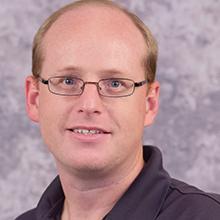 School of Animal and Comparative Biomedical Sciences (College of Agriculture)
Professor, Animal and Comparative Biomedical Sciences
Professor, Physiological Sciences - GIDP Chair, Institutional Animal Care-USE Committee Director, Agriculture Research Complex Professor, Obstetrics and Gynecology Professor, BIO5 Institute Signaling in Vascular and Pulmonary Disease
The thrust of Dr. Limesand’s research is on understanding the relationship between early life risk factors, such as intrauterine growth restriction, and the increased threat of childhood obesity, cardiovascular disease, insulin resistance, and type 2 diabetes. |
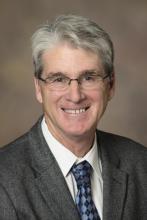 Department of Medicine
Professor, Medicine
Chief, Division of Endocrinology Director, UAHS Center for Disparities in Diabetes, Obesity and Metabolism Cardiovascular and Pulmonary Disease – Molecules to Treatments
Using many clinical physiology techniques, the research in the Mandarino lab is aimed at providing new targets for treating insulin resistance syndrome – sometimes referred to as metabolic syndrome – which increases the risk of obesity, type 2 diabetes, cardiovascular disease and other cardiometabolic conditions; areas of special concern are in the Latino population. |
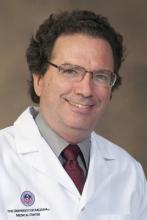 Asthma and Airway Disease Research Center
Director, Asthma / Airway Disease Research Center
The Swift-McNear Professor of Pediatrics Professor, BIO5 Institute Professor, Genetics - GIDP Professor, Pediatrics Regents Professor Cardiovascular and Pulmonary Disease – Molecules to Treatments
Dr. Martinez is a physician-scientist who leads a group that leverages epidemiology, genetics and immunology to investigate the natural history of childhood asthma and lung diseases and the early development of the immune system as a risk factor for lung diseases. |
|
Department of Cellular and Molecular Medicine
Associate Professor, Cellular and Molecular Medicine
Molecular Basis of Cardiac Function
Dr. Ottenheijm’s laboratory is currently investigating the molecular mechanisms through which alterations in mechanical loading affect diaphragm strength, mainly focusing on titin, that may act as a mechanosensor. His group combines single muscle fiber mechanics with protein and transcript studies and high-resolution microscopy to characterize genetically engineered mice and patients’ biopsies. |
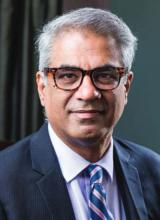 Department of Medicine
Professor, Medicine
Professor, Clinical Translational Sciences Professor, BIO5 Institute Division Chief, Pulmonary / Allergy - Critical Care and Sleep Medicine Cardiovascular and Pulmonary Disease – Molecules to Treatments
Positive airway pressure therapy for sleep-disordered breathing; Sleep injury during critical illness; sleep and circadian disruption in murine models; and Long term consequences of critical illness |
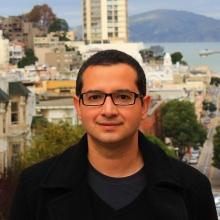 Department of Physiology
Assistant Professor, Physiology
Assistant Professor, Surgery Research in the Pires lab focuses on understanding the regulation of blood flow to the brain under normal and disease states. We are particularly interested in the communication between neurons, astrocytes (a type of glial cells) and endothelial cells that control blood flow to discrete regions of the cerebral cortex, a process called neurovascular coupling. Disease states, such as Alzheimer’s disease and hypertension, are known to alter neurovascular coupling in the brain, leading to improper blood flow delivery to neurons and, consequently, loss of brain cells and cognitive decline. Our lab studies particular receptors in endothelial cells that have their function diminished by Alzheimer’s disease and hypertension, and possible therapies that can improve their function.
|
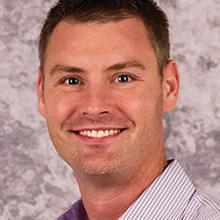 School of Animal and Comparative Biomedical Sciences (College of Agriculture)
Assistant Professor, Animal and Comparative Biomedical Sciences
Assistant Professor, Physiological Sciences - GIDP Assistant Professor, Nutritional Sciences Assistant Professor, BIO5 Institute Chair, Physiological Sciences - GIDP Signaling in Vascular and Pulmonary Disease
The Renquist lab studies the impact of metabolic perturbations on liver-CNS communication to regulate metabolic syndrome, hypertension and hyperinsulinemia. His lab group is uniquely able to address the role of hepatic lipid accumulation in the control of blood pressure. |
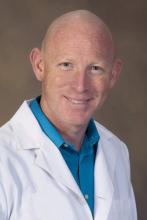 Member of the General Faculty
Associate Professor, Medicine Director, Pulmonary Hypertension Program Cardiovascular and Pulmonary Disease – Molecules to Treatments, Molecular Basis of Cardiac Function, Signaling in Vascular and Pulmonary Disease
Pulmonary Hypertension Use of stress testing and exercise physiology in the assessment of cardiopulmonary disease Right ventricular function and response to therapy |
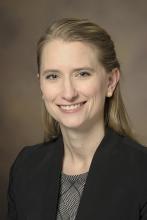 Cellular & Molecular Medicine
Assistant Professor, Cellular and Molecular Medicine
Associate Professor, Cellular and Molecular Medicine BIO5 Fellow, BIO5 Institute Faculty, Genetics Graduate Interdisciplinary Program Member, Center for Applied Genetics and Genomic Medicine Member, UA Sarver Heart Center Associate Professor, Clinical Translational Sciences Associate Professor, Asthma and Airway Disease Research Center Associate Professor, Cancer Biology GIDP Associate Professor, Genetics GIDP The overarching goal of my research program is to better understand the interaction between DNA variation and gene regulation. I study this interaction in settings of inflammation with application to complex diseases like atherosclerosis and hypertension. My research is predominantly focused on endothelial cells, which line blood vessels and are mediators of inflammation in the vessel wall. Using next-generation sequencing technologies, and a combination of experimental and computational approaches, we study how endothelial cells achieve context-appropriate expression patterns in healthy and inflammatory settings. By leveraging the interconnected relationship between DNA sequence, epigenetics, gene expression, and disease loci from genome-wide association studies, we aim to identify and interpret complex disease mechanisms. |
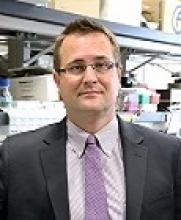 Department of Pharmacology
Professor, Pharmacology
Professor, Neuroscience - GIDP Professor, Physiological Sciences - GIDP Chair, Neuroscience - GIDP Signaling in Vascular and Pulmonary Disease
Dr. Ronaldson’s research program is aimed at identifying and characterizing endogenous CNS transporter targets at the blood-brain barrier that can be targeted for treatment of CNS diseases such as cerebral hypoxia and ischemic stroke. |
|
Pharmacy Administration
Dean, Pharmacy
Professor, Pharmacology and Toxicology Professor, Medicine Professor, Physiological Sciences - GIDP Endowed Chair, Howard J Schaeffer--Pharmaceutical Sciences Professor, BIO5 Institute |
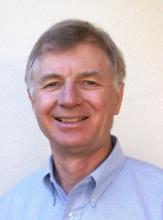 Arizona Research Laboratories
Professor, Physiology
Professor, Mathematics Professor, BIO5 Institute Professor, Applied Mathematics - GIDP Professor, Physiological Sciences - GIDP Professor, Biomedical Engineering Signaling in Vascular and Pulmonary Disease
Dr. Secomb carries out research on theoretical models of the microcirculatory system. His laboratory uses mathematical and computational approaches to study the mechanics of blood flow in microvessels, structural adaptation of microvascular networks, and regulation of blood flow. |
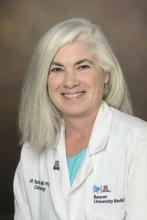 Department of Biomedical Engineering
Professor, Medicine
Professor, Cellular and Molecular Medicine Professor, Biomedical Engineering Professor, Physiological Sciences Professor, BIO5 Institute Cardiovascular and Pulmonary Disease – Molecules to Treatments
Dr. Tardiff is a physician-scientist who is focused on identifying the mechanisms underlying HCM caused by sarcomeric protein mutations. Her studies detail the mechanisms of disease pathogenesis at the level of individual cells. |
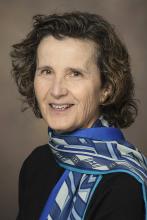 Department of Cellular and Molecular Medicine
Professor, Cellular and Molecular Medicine
Professor, BIO5 Institute Associate Director, Asthma / Airway Disease Research Center Director, Arizona Center for the Biology of Complex Diseases (ABCD) Professor, Genetics - GIDP Regents Professor Member of the Graduate Faculty Cardiovascular and Pulmonary Disease – Molecules to Treatments
Dr. Vercelli is a physician-scientist. Her laboratory seeks to elucidate the impact of genes, environment and development on asthma and allergy pathogenesis using a range of models, including novel humanized BAC transgenic mice that recapitulate the in vivo effects of human asthma/allergy associated genetic variants, and genome-wide DNA methylation analyses of in-depth phenotyped human populations. |
 Vice Dean, Research and Graduate Studies
Professor, Surgery Professor, Biomedical Engineering Cardiovascular and Pulmonary Disease – Molecules to Treatments, Signaling in Vascular and Pulmonary Disease
Cell and Molecule Development for Therapy, Tissue Engineering and Transplantation |

